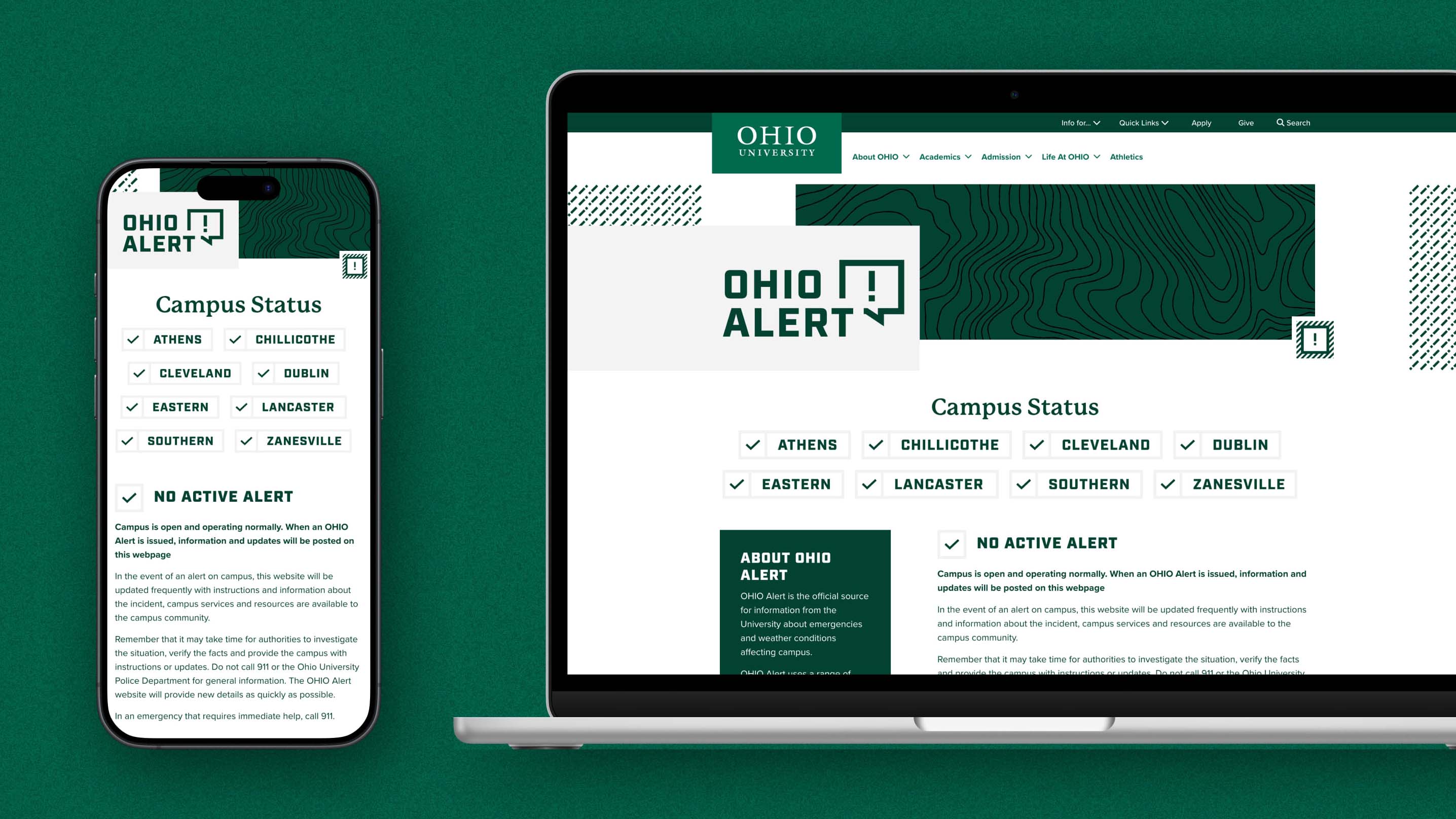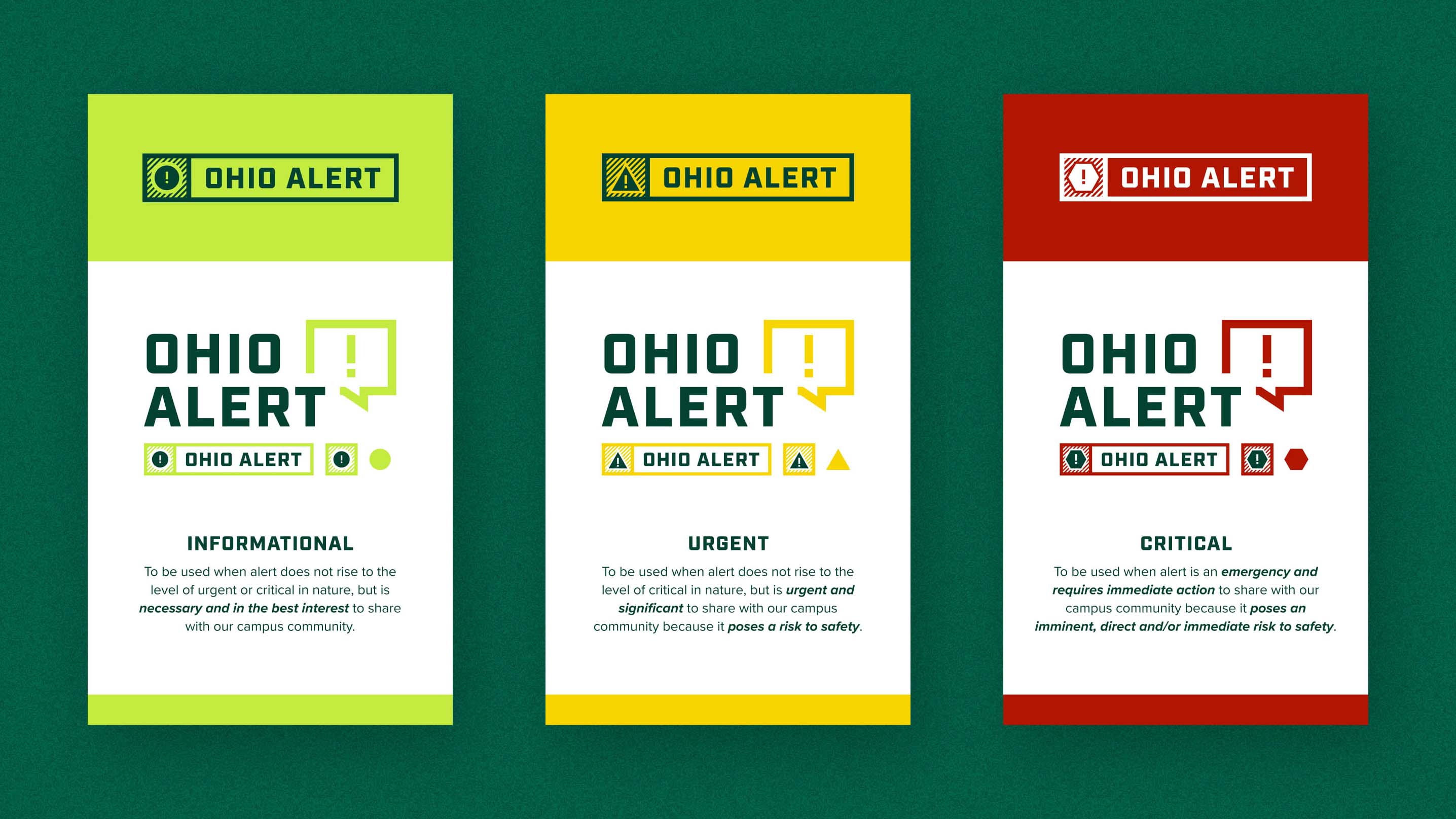
This week, Ohio University launched a new website with resources for faculty, staff and students related to preparing for and responding to campus emergencies. In addition, OHIO has updated the design of its online OHIO Alert page, which appears on ohio.edu in the event of an emergency, to feature three color-coded alert levels: informational (green), urgent (yellow) and critical (red).
The new University Safety and Security website has several key components:
- Emergency Procedures: The site surfaces detailed information from Ohio University’s emergency response plan to help faculty, staff and students know how they should respond to various types of incidents. This could include events such as a fire emergency, a severe weather event or more.
- OHIO Alert Sign Up: Details are provided about Ohio University’s text, email and web alert system and how to ensure the University has your cell phone number so that you will receive alerts on your mobile device.
- Safety Resources: The site brings together important information about how you can be an active part of ensuring a safe campus environment, including prevention and education resources around topics such as hazing or discrimination as well as various safety training opportunities.
OHIO Alert: Web Updates
In addition to these new resources, the website edition of OHIO Alert has been updated to feature color-coding to indicate an emerging or imminent emergency situation and its anticipated impact on the University community.
- GREEN for general information related to campus safety and/or operations.
- YELLOW for urgent campus situations that pose an emerging risk to campus safety and/or routine operations.
- RED for critical campus incidents that require immediate action.

OHIO Alert web contains a comprehensive, informational landing page that includes both quick-glance and detailed information regarding the operating status of each University campus and/or center.

The updated OHIO Alert page provides color-coded communications to help convey an emerging or imminent emergency situation and its anticipated impact on the University community.
Sept. 6: Campus-Wide Emergency Systems Testing Planned
Ohio University's Athens, Chillicothe, Eastern, Lancaster, Southern and Zanesville campuses will collectively test several of its emergency communication systems at approximately noon on Friday, September 6.
The University periodically tests its emergency communications systems, including through web, text messaging, email, outdoor notification broadcasts (Athens Campus only), digital signage and/or phone to ensure the notifications are working properly and to help familiarize its University communities with how it would communicate during an emergency.



